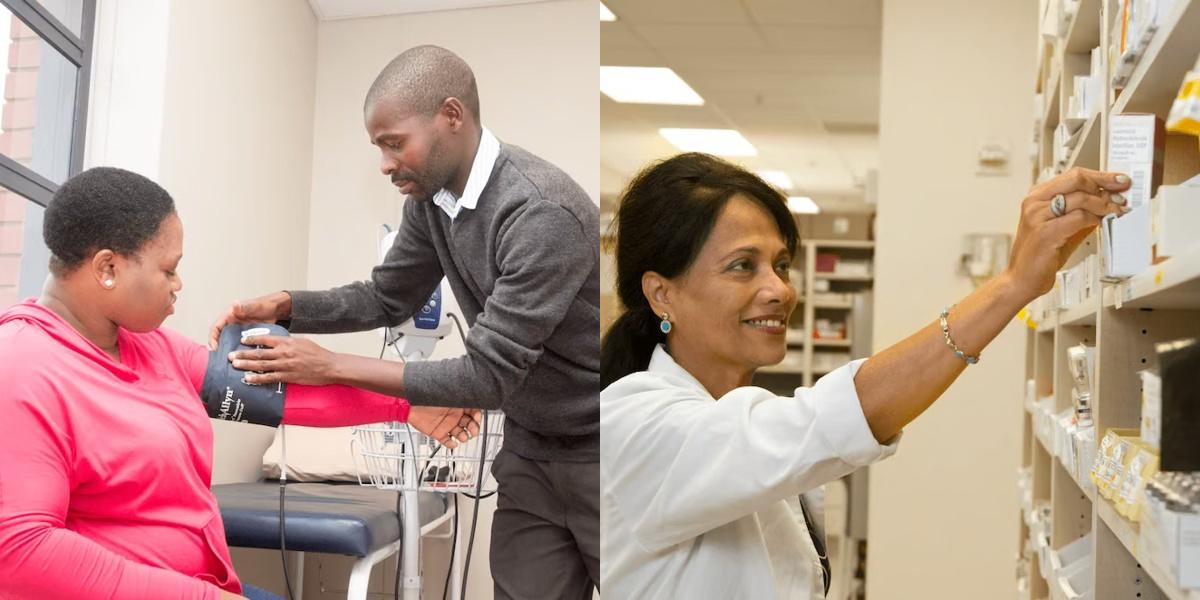Medical Assistant vs Pharmacy Technician

If you’re deciding between becoming a Medical Assistant or a Pharmacy Technician, this guide breaks down training, duties, salary, and career outlook. It’s designed for students, career changers, and job seekers exploring healthcare roles.
How to Become a Pharmacy Technician
- Enroll in an accredited training program (few months to 2 years)
- Earn a diploma, certificate, or associate’s degree in Pharmacy Technology
- Pass state-required certification exams such as PTCB or ExCPT (varies by state)
- Gain on-the-job training in a retail or hospital pharmacy
- Apply for certified pharmacy technician jobs
Explore Pharmacy Technician classes near you
Salary and Job Outlook
- Medical Assistants earn a median of $44,200 per year, according to the U.S. Bureau of Labor Statistics. Jobs are projected to grow 15% from 2023 to 2033 (BLS). You can explore open medical assistant jobs in your area through MyNextMove.
- Pharmacy Technicians earn a median of $43,460 per year, per the BLS. Employment is projected to grow 7% from 2023 to 2033 (BLS). Check available pharmacy technician jobs near you through MyNextMove.
Which Career Is Right for You?
- Choose Medical Assistant if you enjoy patient interaction, multitasking, and working directly with doctors and nurses.
- Choose Pharmacy Technician if you prefer working with medications, accuracy, and detail-oriented tasks in a pharmacy setting.
Final Thoughts
Both careers offer stable entry points into healthcare with solid growth opportunities. The choice comes down to whether you want more direct patient care or a focus on pharmacy operations.
Dreambound makes it simple to compare programs across the U.S. Explore training opportunities here:

Sunshine is a member of the School Growth team at Dreambound, where she assists students and schools with their billing and onboarding needs. She is a licensed mechanical engineer. Outside of work, she enjoys road trips with her family, discovering cozy cafes, and exploring her love for art.





